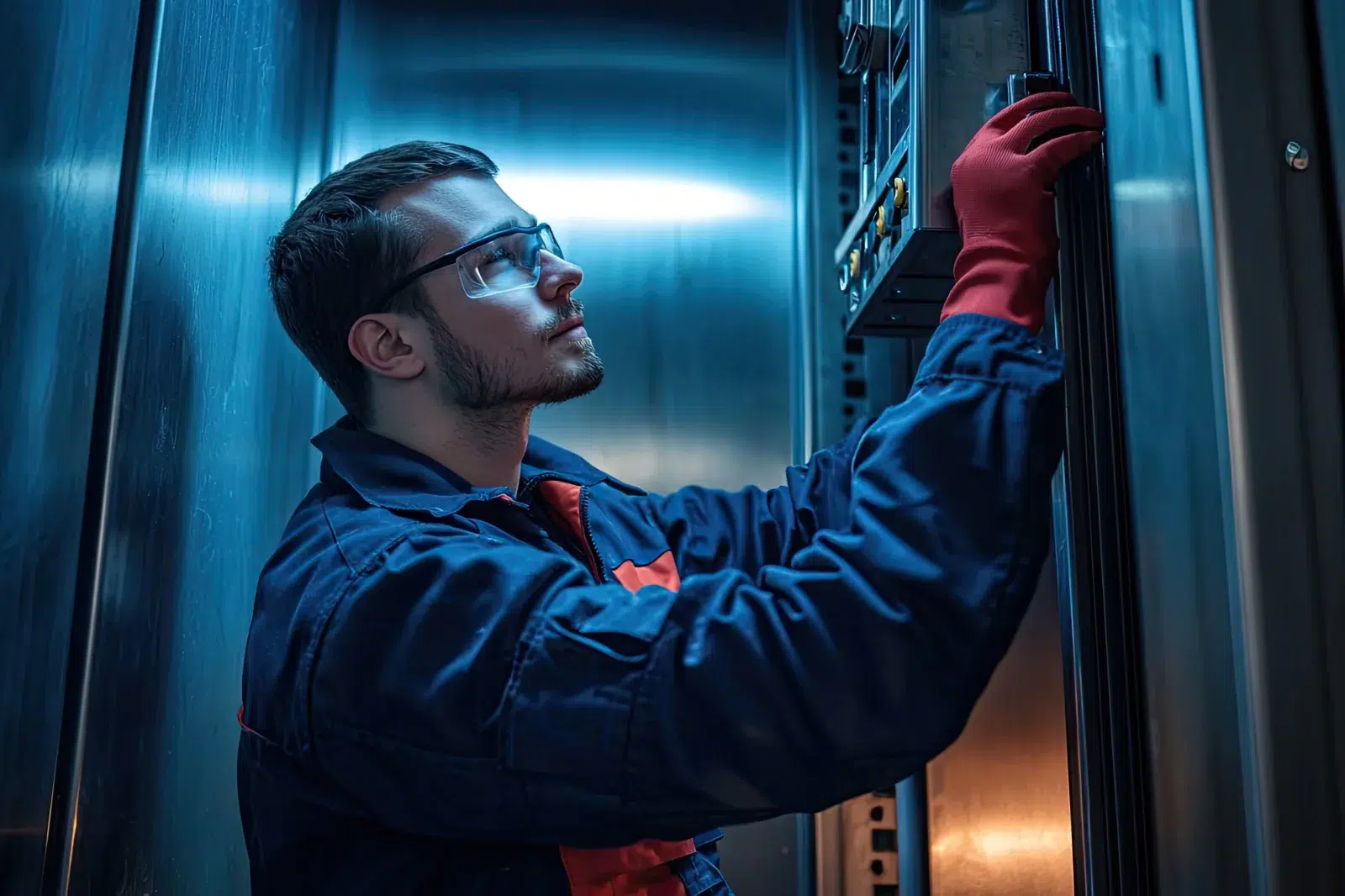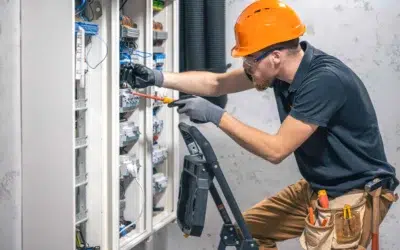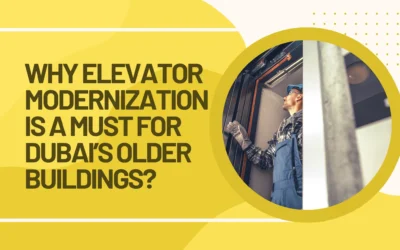Have ever been stuck in a lift and wondered why it failed in the first place?
In this world where skyscrapers are part of the skyline and high-rise buildings dominate our cities. So elevator maintenance is now more than a service – it has become a necessity. As buildings become smarter, elevators too must evolve.
If you are a building owner or facilities manager, knowing these changes is essential. By bringing the latest elevator maintenance technologies, you assure smoother rides, longer equipment life and happier occupants.
Let’s get into the must-know innovations reshaping the elevator industry in 2025.
Why Elevator Maintenance Technology Matters?
When we see an elevator, we think it’s just a mechanical box, right? But, not anymore; they are now smart, connected systems. This shift is enough to show how they are maintained and monitored. Modern buildings now can’t rely on outdated maintenance routines, especially when the stakes involve passenger safety and costly downtimes.
So, why does maintenance really matter? Let’s talk about it.
The Challenges of Traditional Elevator Maintenance
Traditional elevator servicing follows a reactive model – fix it after it breaks. While it might look cheaper in the short run, it causes more time spent for fixing things and bigger repair costs. Sudden malfunctions can also compromise user safety and inconvenience for everyone in the building.
Compare this with proactive maintenance, where potential issues are detected and addressed early. The difference lies in predictability, planning and prevention – something that technology excels at delivering. So, when you stack it all up, the old way of ‘wait till it breaks’ just doesn’t cut it anymore.
Benefits of smart elevator technology
Of course, it changed a lot.
When smart technologies are introduced into elevator systems, safety and reliability see huge elevator safety improvements. Predictive maintenance uses data analysis to identify problems before they happen which may reduce sudden breakdowns and unnecessary service calls.
Plus, building owners get the added benefit of a smoother user experience. Elevators can operate more efficiently, respond faster and offer real-time updates. You think it’s just a convenience, actually it’s smart building management.
Clearly, it’s time to leave old habits behind and let technology take maintenance to the next level.
Smart Technologies Transforming Elevator Maintenance
Elevator maintenance trends 2025 are all about data, automation and intelligent systems. Here’s a look at the advanced technologies driving this change.
IoT (Internet of Things) for Real-Time Monitoring
Sensors now play a huge role in identifying wear and tear before it causes failures. IoT-enabled elevator systems:
- Send continuous performance data
- Detect unusual vibrations or movements
- Track door operations in real-time
For instance, smart elevator IoT solutions can alert technicians to component issues before users even notice a problem. This means faster repairs and fewer disruptions.
Predictive Maintenance with AI and Machine Learning
AI is transforming how we look at maintenance. These systems:
- Analyze historical data and usage trends
- Predict future failures
- Enable health-based scheduling vs. time-based
A case study: A North American elevator company used an AI-based predictive maintenance system for over 250 elevators. They used Microsoft Azure and HDInsight to track data like vibration, motor temperature, and how often the doors open and close.
The results reported were:
- A 78% reduction in unplanned downtime
- $120,000 in quarterly service cost savings
- A 33% improvement in service-level agreement (SLA) adherence
Source: Innover – AI-Powered Predictive Maintenance Case Study
Remote Diagnostics and Cloud-Based Systems
Gone are the days when technicians had to be onsite to understand an issue. Remote diagnostics allow service providers to:
- Access elevator systems via cloud
- Read and resolve error codes offsite
- Track performance history quickly
This leads to faster service, fewer site visits, and better use of manpower. Plus, cloud-based logs can provide maintenance histories at a click.
Mobile Apps for Elevator Management
Smartphone apps are not just for users anymore. Smartphone apps empower building managers with:
- Instant alerts for malfunctions
- Live operational status
- Easy maintenance requests
Imagine getting notified instantly when a lift stops between floors or when a door isn’t closing properly. These features help streamline communication, faster issue resolution and better accountability. Now no issue goes unnoticed.
Energy-Efficient and Smart Controllers
Elevators also impact a building’s energy footprint. Smart controllers help optimize movement and reduce power consumption. These technologies:
- Adjust elevator speed based on traffic
- Use regenerative drives to save energy
- Contribute to building sustainability
Implementing these eco-friendly technologies not only helps the environment but also cuts operational costs and improves building ratings.
And is your’s a villa? Have any doubts on how these technologies transform maintenance? Here’s our blog on this, “How Modern Technology Can Improve Your Villa Elevator Maintenance?”
Key Benefits of Adopting These Technologies
Spending money on elevator maintenance technology today will save your money and headaches in the future. By combining smart technologies such as AI-driven diagnostics and real-time monitoring, building owners and facility managers can transition from reactive to proactive maintenance approaches.
Below are some of the key benefits building owners can expect when adopting these innovations.
| Benefit | Description |
| Cost-Effective Maintenance | Lower the amount of unnecessary service calls and unscheduled emergency repair work by avoiding equipment breakdowns through predictive alerts. |
| Extended Equipment Lifespan | Avoid unnecessary wear and replacements through timely air service diagnostics. |
| Improved Building Safety and Compliance | Smart monitoring guarantees that safety vaudits are kept up to date and comply with legal standards. |
How Building Owners Can Get Started?
Technology adoption doesn’t have to be overwhelming. A structured approach can make the transition smooth and efficient.
Partnering with Modern Elevator Service Providers
Not all service providers offer the best solutions. It’s important to choose a vendor experienced in smart elevator technology. Look for those who provide IoT-based maintenance, AI diagnostics, and cloud platforms.
Companies like York Elevators, known for their innovation in elevator service provider solutions are already leading in this space.
Assessing Your Current Elevator System
Before investing in new technology, get an expert audit of your current setup. Some systems may be able to be upgraded with sensors and controllers, while others may require a full replacement of the system. Consider your system’s age, condition, upgrade-ability (retrofit or replace) and cost-benefit analysis.
This assessment helps set realistic budgets and implementation timelines. You can also identify which buildings would benefit most from immediate upgrades.
Planning for Technology Integration
Create a step-by-step plan for integration. Here’s a simple plan to begin:
- Start with high-traffic elevators
- Install sensors and controllers
- Enable remote monitoring
- Train internal teams
This staged approach assures smooth transition, minimal service disruption and faster ROI.
So, where does all this leave us?
The future of elevator maintenance is already here – smart, connected and efficient. As a building owner, adopting elevator maintenance technology is a long-term strategy for safety, savings, and success. But all you want to choose is the right option like York Lift.
York Lift is an elevator and escalator company based in Dubai, UAE, known for offering world-class installation and lift maintenance solutions, who have been in this industry for years. We source the best products from global manufacturers and customize systems to suit architectural and aesthetic requirements.
Our maintenance offerings include:
- Preventive and corrective services by certified technicians.
- Backed by 24/7 support
- Rigorous safety standards
- Competitive pricing





